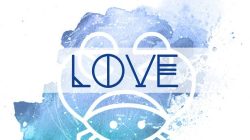So, you got a low JAMB score, and now you’re wondering if you can still get into university. You absolutely can. Not everyone scores 250 and above in JAMB. In fact, a lot of students don’t even hit 200. And that can be really frustrating, especially when you’ve studied hard and had high hopes of studying competitive degrees in Medicine, Law, Engineering, or some of the other
best courses to study in Nigeria
.
But a low JAMB score shouldn’t mean the end of your university dream. There are plenty of other great courses that accept lower JAMB scores.
Let’s talk about seven of these courses, why they’re good options, and what you can do with them after graduation.
1. Education (all subjects)
Courses like Education and Chemistry, Education and English, or Guidance and Counselling are more accessible if you have a JAMB score below 180. Many universities set lower cut-off marks for education-related programs because they’re not as competitive.
After graduation, you can work as a teacher in schools, or even go into education administration, curriculum development, or private tutoring. With additional certifications, you could also teach internationally.
ALSO READ:
Failed JAMB? 5 Alternative Paths to Success in Nigeria
2. Agricultural Science
Agriculture is one of Nigeria’s most important sectors, yet it doesn’t always get the attention it deserves. Many universities accept lower JAMB scores for Agriculture-related courses because fewer students apply for them.
Agriculture is not
the worst course to study
. Infact, it’s a smart career path. Nigeria needs more experts in farming, food production, and agribusiness. You can study Crop Science, Animal Production, or Agricultural Extension with a score as low as 150 in many schools.
With a degree in Agriculture, you can work in farming, agricultural research, food processing companies, or even start your own agribusiness.
The government and NGOs also hire Agriculture graduates for development projects.
3. Religious Studies/Theology
Courses like Philosophy, Christian Religious Studies (CRS), and Islamic Studies are typically less competitive. They focus on ethics, critical thinking, and culture, and are often offered with cut-off marks as low as 140 or 150.
After graduation, you can work as a religious leader, a counsellor, or in community development. Many graduates also go into teaching, publishing, or nonprofit work. Even if you don’t want to be a pastor or imam, this degree can open doors in ethics, social work, and cultural studies.
YOU MIGHT LIKE:
10 best courses to study in Nigeria for quick employment
4. Home Economics
Home Economics is a broad field that covers nutrition, family finance, child development, and even entrepreneurship. Many universities accept low JAMB scores for this course because it’s often overlooked.
Graduates can work in hospitality, food industries, family counselling, or even start their own businesses (like catering or fashion design).
With Nigeria’s growing focus on healthy living and family welfare, Home Economics graduates are actually in demand.
5. Library and Information Science
This course is perfect if you love books, research, or organising information. The cut-off mark is usually low, and .
After graduation, you can work as a librarian in schools, universities, or government offices. You could also go into data management, publishing, or digital archiving, especially now that everything is going online.
6. Theatre Arts/Performing Arts
If you’re creative and love acting, music, or writing, Theatre Arts is a fantastic choice. Many universities accept lower JAMB scores from 140 and above because it’s performance-based.
Nollywood, music, and media industries are growing fast, so Theatre Arts graduates have many opportunities. You could become an actor, scriptwriter, director, event manager, or even a media content creator. If you’re good, you could make a great career in entertainment.
7. Local Language Studies (Yoruba, Igbo, Hausa, etc.)
Studying Nigerian languages like Yoruba, Igbo, or Hausa might not seem attractive, but it’s actually very useful. Many universities accept low JAMB scores for these courses because fewer students apply.
After graduation, you can work as a language teacher, translator, cultural officer, or even in the media. Think radio/TV presenting in local languages. With Nigeria’s push for local language preservation, this degree could lead to government jobs or research opportunities.
So, what should you do next?
Many successful people started with “less competitive” courses and still built amazing careers. Your JAMB score doesn’t define your future; your effort does.
RECENT:
Top 10 cheapest universities in Nigeria 2025 – Some as low as ₦25,000







